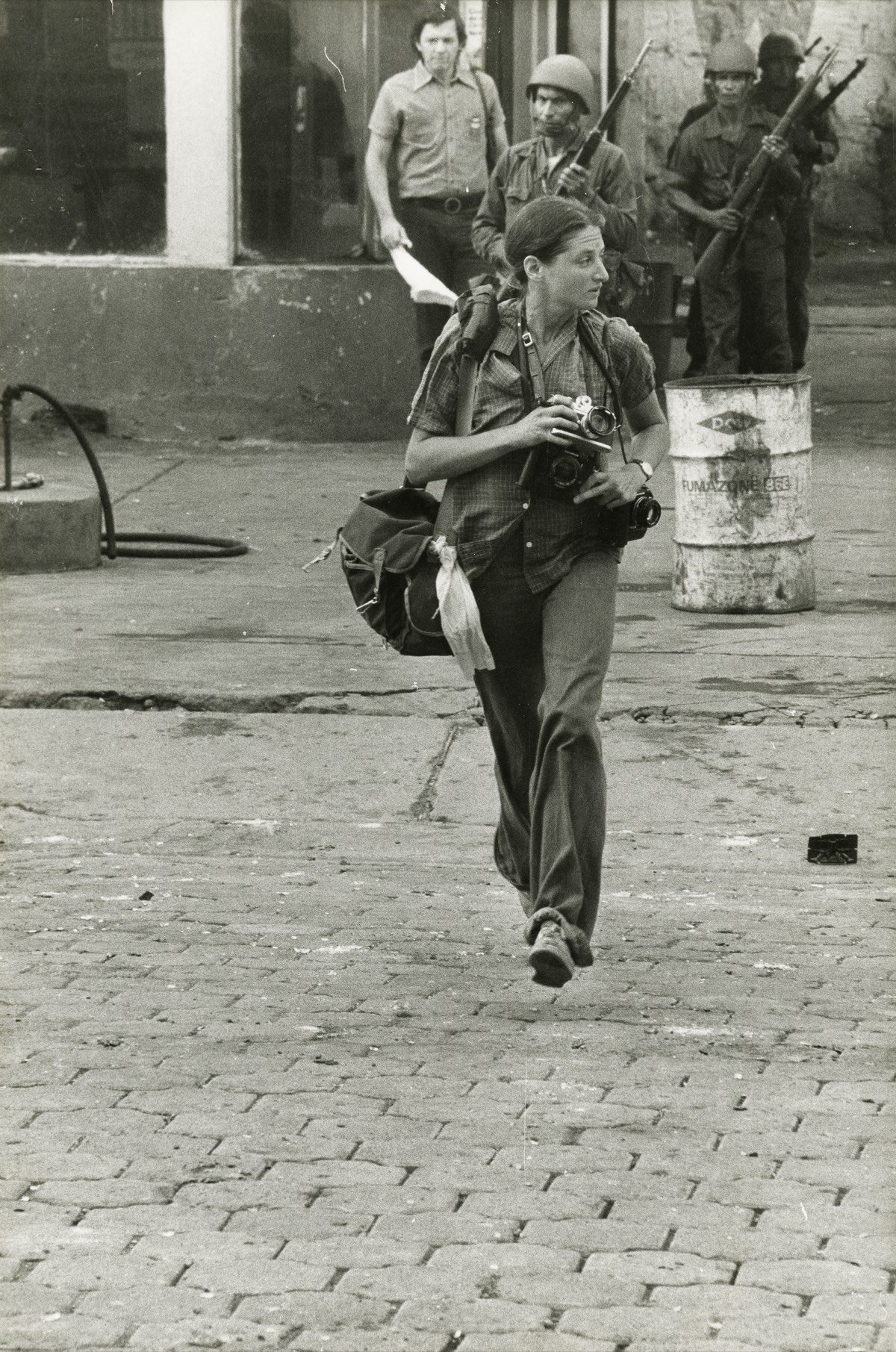Susan Meiselas photography offers a profound glimpse into the intricate tapestry of human experience, most notably encapsulated in her iconic series, “44 Irving Street.” This collection, featured at the prestigious Harvard Art Museums, reveals the intimate social interactions in photography that have come to define Meiselas’s unique vision as a documentary photographer. Her work, often described as groundbreaking, doesn’t just capture images but tells rich, layered stories of the individuals behind them. From her early days as a student at the Harvard Graduate School of Education, Meiselas’s groundbreaking approach evolved through engaging with her neighbors, making her subjects integral to the narrative. Through compelling photography exhibitions like “44 Irving Street,” Meiselas redefines documentary photography, illuminating the profound connections that can emerge from the lens of a camera.
The artistry of Susan Meiselas is enriched by her commitment to storytelling through visuals, showcasing the humanity at the core of her subject matter. By focusing on personal narratives and community through her lens, she creates a space where observers can engage with the essence of her subjects’ lives. The Harvard Art Museums honor her legacy with exhibits that amplify not only her images but also the voices captured within them. Meiselas’s work transcends traditional photography, embracing the notion that photographs are portals into people’s inner worlds and social landscapes. Ultimately, her focus on the interactions and connections between individuals transforms photography into a medium of empathy and understanding.
The Impact of Susan Meiselas on Documentary Photography
Susan Meiselas has significantly shaped the field of documentary photography, utilizing her lens not just to capture images, but to tell poignant stories that reflect real human experiences. Her work, particularly the ’44 Irving Street, Cambridge, MA’ series, offers a unique perspective on everyday life and social interactions, making the ordinary extraordinary. This series stands out as a pivotal moment in her career, demonstrating how photography can serve as a powerful tool for connection and empathy. By focusing on her boarding house neighbors, Meiselas transformed mundane subjects into narratives that reveal deeper truths about identity and community.
Her approach transcends traditional documentary methods by incorporating the subjects’ own reflections and responses to their portraits, a technique that engages viewers on a more profound level. This interaction not only highlights social dynamics but also emphasizes the importance of collaboration in photography. Meiselas’s work inspires a movement towards more inclusive practices in visual storytelling, challenging photographers to consider the ethical implications of representation while fostering a sense of dialogue between photographer and subjects.
Exploring the ’44 Irving Street Series’ at Harvard Art Museums
The ’44 Irving Street’ series, currently on display at the Harvard Art Museums, invites viewers to explore a slice of life in early 1970s Cambridge through the lens of Susan Meiselas. Each photograph captures the essence of her neighbors, revealing their personal spaces and individual stories. The gallery not only showcases these striking black-and-white prints but also incorporates written responses from the subjects themselves, adding layers of meaning to the visual narrative. This integration of personal commentary transforms the exhibition into a rich tapestry of social interactions, making the viewer a part of an ongoing conversation about identity and self-perception.
Visitors to the exhibition are not merely passive observers; they are encouraged to engage with the thoughts and feelings expressed by those in the photographs. The use of QR codes allows for an interactive experience, bringing the viewer closer to the emotional landscape of the subjects. Meiselas’s thoughtful curation of this series emphasizes the profound connections that can be forged through photography, prompting us to reflect on our own relationships and the power of representation in the arts. It illustrates how documentary photography can act as a mirror, reflecting both individual and collective narratives.
The Evolution of Photography and Social Interaction
In modern photography, the ways in which social interactions are captured and interpreted have evolved dramatically, especially in the wake of digitization and social media. Traditionally, documentary photography aimed to present an objective reality; however, artists like Susan Meiselas are redefining these boundaries. By emphasizing the personal engagement of her subjects, Meiselas highlights how photography can foster community and connection rather than simply document isolation. This shift in perspective has significant implications for the genre, allowing for a more nuanced understanding of shared human experiences.
Moreover, the conversation around social interactions in photography emphasizes an ethical responsibility among photographers to represent their subjects authentically. As Meiselas’s work suggests, involving subjects in the storytelling process enriches the narrative and enhances representation. This practice is particularly relevant in contemporary photography, where the dialogue surrounding identity, culture, and community has gained prominence. The impact of social interactions reflects a changing landscape where the emphasis is placed on empathy and collaboration rather than mere observation.
Documentary Photography: A Lens on Human Stories
Documentary photography serves as a crucial medium for documenting the human condition, revealing the intricate stories that unfold in everyday life. Through her works, Susan Meiselas exemplifies how photography can transcend mere image-making to deliver compelling narratives that resonate with audiences. The ’44 Irving Street’ series, among other projects, illustrates her profound commitment to showcasing the realities of life through a lens that is empathetic and engaging. Each portrait not only captures a moment in time but also invites viewers to connect with the emotional truths of her subjects.
This style of photography emphasizes the significance of storytelling in building social awareness and understanding. It challenges viewers to look beyond the surface and consider the histories and experiences that shape individual lives. Meiselas’s practice encourages the idea that documentary photography is not just about what is seen, but also about the emotions and narratives that are elicited through the act of capture. By focusing on human stories, photographers can elevate their work to reflect broader societal themes, ultimately leading to greater empathy and awareness among audiences.
Social Interactions in Photography: A New Perspective
The role of social interactions in photography is increasingly gaining recognition as a vital component of visual storytelling. Photographers today are realizing that the connections they foster with their subjects can greatly enhance the richness of their work. Susan Meiselas’s approach to her ’44 Irving Street’ series underscores this evolution, whereby the camera acts as a bridge facilitating dialogue between photographer and subject. By engaging with her neighbors not just as subjects but as collaborators, Meiselas highlights how photography can encapsulate the essence of community.
Through her innovative methods, Meiselas encourages photographers to immerse themselves within the lives of their subjects, fostering trust and rapport that influences the resulting images. This relationship transforms the perspective of both the photographer and the viewer, offering a more authentic representation of life. The reciprocity inherent in this process allows for a deeper exploration of identity and belonging, signaling a shift in how social interactions are perceived and represented in contemporary photography. The approach creates a dynamic interplay that enriches the narratives being told.
The Power of Representation in Photography
Representation in photography plays a critical role in shaping societal perceptions and narratives. As Susan Meiselas articulates through her experiences with the ’44 Irving Street’ series, the way individuals are portrayed can either empower or marginalize them. Her commitment to including subjects’ voices in her work reflects a powerful understanding of the photographer’s responsibility in depicting reality. The subjective interpretation that each subject brings to their photographic representation invites critical discussions about visibility, identity, and the ethics of portrayal in the arts.
Moreover, this concept of representation extends beyond individual images; it encourages broader conversations about how marginalized communities are often depicted in media and art. Meiselas’s insistence on collaboration and participation calls for a re-evaluation of standard practices in photography, positioning subjects as active participants in their narratives. By doing so, photographers can contribute to a more inclusive and equitable portrayal, ultimately reshaping how history and culture are documented and perceived.
Exhibiting Personal Narratives in Art Spaces
Art exhibitions serve as vital spaces for showcasing personal narratives through the medium of photography. Susan Meiselas’s exhibition of the ’44 Irving Street’ series at the Harvard Art Museums is a testament to the impact that storytelling can have within an artistic context. It not only provides a platform for individual stories to be heard but also contributes to a larger dialogue about community, identity, and human experience. The physical space of the gallery allows for an immersive exploration of these narratives, engaging visitors in a manner that transcends traditional viewing.
The inclusion of personal reflective writings alongside the photographs deepens the viewer’s understanding and connection to the subjects. This multifaceted approach highlights the significant interplay between visual and written narratives, fostering a rich environment for contemplation. By curating exhibitions that underscore personal narratives, artists like Meiselas champion the importance of storytelling in art, encouraging both appreciation and empathy among audiences. The ability to connect with subjects on a personal level further reinforces the necessity of personal narratives in shaping cultural discourse.
The Role of Community in Photography
Community plays an integral role in shaping both the practice and output of photography. Susan Meiselas’s work emphasizes the interconnectedness of individuals and their environments, highlighting how community influences personal identity and perspectives. The ’44 Irving Street’ series not only captures individual residents but also showcases the collective spirit of their living space, demonstrating how shared experiences foster connections. This focus on community reflects a growing trend in documentary photography, where social ties and relationships become focal points of expression.
By portraying the lives and stories of those within her boarding house, Meiselas illustrates the ways in which community dynamics impact personal narratives. The images serve as a microcosm of larger social landscapes, inviting viewers to explore the complexities of interpersonal relationships and social structures. This community-centric approach challenges photographers to consider their own connections with subjects, ultimately fostering a more engaged and caring photographic practice. As we consider the role of community in photography, we see the potential for visual storytelling to become a catalyst for social change.
Photography Exhibitions and Cultural Reflection
Photography exhibitions serve as cultural touchstones, reflecting the societal values, issues, and narratives of their time. Susan Meiselas’s exhibition of the ’44 Irving Street’ series at the Harvard Art Museums exemplifies how photography can initiate meaningful conversations about identity and community. By showcasing her work in a gallery setting, Meiselas not only presents her artistic vision but also invites viewers to engage with the cultural narratives embedded within her photographs. This creates a space for reflection on how personal and collective identities are formed and expressed.
Through the lens of her exhibition, Meiselas prompts viewers to consider the broader implications of representation and narrative in photography. The interplay between the images on display and the contemporary social issues that permeate our lives fosters an environment where culture is not just observed but felt. Such exhibitions challenge audiences to confront and re-evaluate their perceptions of identity, community, and the role of art in society. As cultural reflections, photography exhibitions like Meiselas’s serve as catalysts for dialogue and understanding, emphasizing the significance of narrative in the arts.
Frequently Asked Questions
What is the significance of Susan Meiselas’ ’44 Irving Street’ series in documentary photography?
Susan Meiselas’ ’44 Irving Street, Cambridge, MA’ series is significant in documentary photography as it marks the inception of her career. This series, created while she was pursuing her master’s degree at Harvard, focuses on social interactions and personal spaces of her neighbors. By engaging with her subjects and recording their thoughts and feelings about their portraits, Meiselas illustrates the power of photography not just as an artistic tool but as a means of connection, laying the groundwork for her future work in documentary photography.
Where can I view the ’44 Irving Street’ series by Susan Meiselas?
The ’44 Irving Street, Cambridge, MA’ series by Susan Meiselas is currently on display at the Harvard Art Museums. This exhibition features her black-and-white prints from the early 1970s, showcasing her approach to documentary photography and social interactions.
How did Susan Meiselas’ education influence her photography style?
Susan Meiselas’ education, particularly her photography class at Harvard, significantly influenced her style as a documentary photographer. The sociological approach presented in the course inspired her to capture the personal stories and interactions of her subjects, particularly noted in her ’44 Irving Street’ series. This focus on connection and representation continues to shape her photographic practice.
What themes does Susan Meiselas explore in her photography?
In her photography, Susan Meiselas explores themes of connection and the complex dynamics between the photographer and the subject. Her ’44 Irving Street’ series highlights the personal narratives of her neighbors, stressing the importance of social interactions in photography and how these relationships shape the stories told through her images.
How did Susan Meiselas involve her subjects in the photography process?
Susan Meiselas involved her subjects in the photography process by inviting them to participate in the narrative of their portraits. After photographing them in their personal spaces, she would return with contact sheets and ask how they felt about themselves, encouraging them to share their thoughts. This participatory approach emphasizes the collaborative nature of her documentary photography.
What impact did the ’44 Irving Street’ series have on the future of Susan Meiselas’ career?
The ’44 Irving Street, Cambridge, MA’ series had a profound impact on Susan Meiselas’ career, serving as a foundation for her work in documentary photography. It established her signature approach to engaging viewers through personal narratives, capturing the essence of social interactions, and embracing the complexities of representation, which she continued to explore in her later projects.
What can visitors expect to learn from Susan Meiselas’ exhibition at the Harvard Art Museums?
Visitors to Susan Meiselas’ exhibition at the Harvard Art Museums can expect to learn about the nuances of documentary photography through the lens of social interaction and personal storytelling. The ’44 Irving Street’ series not only showcases her technical skills but also invites viewers to reflect on the relationship between subject and photographer, as evidenced by the written responses from her subjects presented alongside the images.
| Key Points | Details |
|---|---|
| Background of Susan Meiselas | Susan Meiselas, a documentary photographer and president of the Magnum Foundation, began her journey in photography while pursuing her master’s degree at Harvard. |
| ’44 Irving Street’ Project | Created during a class assignment, this series explored her neighbors in a Cambridge boarding house and marked her entry into photography. |
| Themes Explored | Meiselas focused on the power of representation, connection, and the responses of her subjects, which shaped her future work. |
| Impact on Education | Meiselas later used photography as a storytelling tool while teaching in the South Bronx, emphasizing narrative over formalism. |
| Exhibition Details | The ’44 Irving Street, Cambridge, MA’ photographs are displayed at the Harvard Art Museums until April 6. |
Summary
Susan Meiselas photography is a profound exploration of human connection and representation. Her journey began with the ’44 Irving Street, Cambridge, MA’ project, where she not only captured images but also created a dialogue with her subjects, reflecting on their identities. This early work laid the groundwork for her later projects and themes, where she emphasizes the importance of representation and the photographer’s responsibility. Through her exhibitions and educational endeavors, Meiselas continues to inspire a deeper understanding of photography as a tool for storytelling and community engagement.



